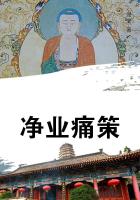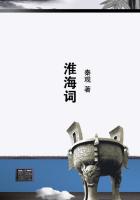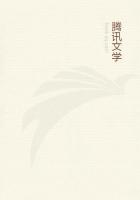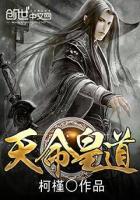Little Britain has likewise its sages and great men.One of the most important of the former is a tall,dry old gentleman,of the name of Skryme,who keeps a small apothecary's shop.He has a cadaverous countenance,full of cavities and projections;with a brown circle round each eye,like a pair of horned spectacles.He is much thought of by the old women,who consider him a kind of conjurer,because he has two of three stuffed alligators hanging up in his shop,and several snakes in bottles.He is a great reader of almanacs and newspapers,and is much given to pore over alarming accounts of plots,conspiracies,fires,earthquakes,and volcanic eruptions;which last phenomena he considers as signs of the times.He has always some dismal tale of the kind to deal out to his customers,with their doses;and thus at the same time puts both soul and body into an uproar.He is a great believer in omens and predictions;and has the prophecies of Robert Nixon and Mother Shipton by heart.No man can make so much out of an eclipse,or even an unusually dark day;and he shook the tail of the last comet over the heads of his customers and disciples until they were nearly frightened out of their wits.He has lately got hold of a popular legend or prophecy,on which he has been unusually eloquent.There has been a saying current among the ancient sibyls,who treasure up these things,that when the grasshopper on the top of the Exchange shook hands with the dragon on the top of Bow Church Steeple,fearful events would take place.This strange conjunction,it seems,has as strangely come to pass.The same architect has been engaged lately on the repairs of the cupola of the Exchange,and the steeple of Bow church;and,fearful to relate,the dragon and the grasshopper actually lie,cheek by jole,in the yard of his workshop.
"Others,"as Mr.Skryme is accustomed to say,"may go star-gazing,and look for conjunctions in the heavens,but here is a conjunction on the earth,near at home,and under our own eyes,which surpasses all the signs and calculations of astrologers."Since these portentous weathercocks have thus laid their heads together,wonderful events had already occurred.The good old king,notwithstanding that he had lived eighty-two years,had all at once given up the ghost;another king had mounted the throne;a royal duke had died suddenly,--another,in France,had been murdered;there had been radical meetings in all parts of the kingdom;the bloody scenes at Manchester;the great plot of Cato Street;and above all,the queen had returned to England!All these sinister events are recounted by Mr.
Skryme,with a mysterious look,and a dismal shake of the head;and being taken with his drugs,and associated in the minds of his auditors with stuffed sea-monsters,bottled serpents,and his own visage,which is a title-page of tribulation,they have spread great gloom through the minds of the people of Little Britain.They shake their heads whenever they go by Bow Church,and observe,that they never expected any good to come of taking down that steeple,which in old times told nothing but glad tidings,as the history of Whittington and his Cat bears witness.
The rival oracle of Little Britain is a substantial cheese monger,who lives in a fragment of one of the old family mansions,and is as magnificently lodged as a round-bellied mite in the midst of one of his own Cheshires.Indeed,he is a man of no little standing and importance;and his renown extends through Huggin Lane,and Lad Lane,and even unto Aldermanbury. His opinion is very much taken in affairs of state,having read the Sunday papers for the last half century,together with the "Gentleman's Magazine,"Rapin's "History of England,"and the "Naval Chronicle."His head is stored with invaluable maxims which have borne the test of time and use for centuries.It is his firm opinion that "it is a moral impossible,"so long as England is true to herself,that anything can shake her;and he has much to say on the subject of the national debt,which,somehow or other,he proves to be a great national bulwark and blessing.He passed the greater part of his life in the purlieus of Little Britain,until of late years,when,having become rich,and grown into the dignity of a Sunday cane,he begins to take his pleasure and see the world.
He has therefore made several excursions to Hampstead,Highgate,and other neighboring towns,where he has passed whole afternoons in looking back upon the metropolis through a telescope,and endeavoring to descry the steeple of St.
Bartholomew's.Not a stage-coachman of Bull-and-Mouth Street but touches his hat as he passes;and he is considered quite a patron at the coach-office of the Goose and Gridiron,St.Paul's churchyard.His family have been very urgent for him to make an expedition to Margate,but he has great doubts of those new gimcracks,the steamboats,and indeed thinks himself too advanced in life to undertake sea-voyages.
Little Britain has occasionally its factions and divisions,and party spirit ran very high at one time in consequence of two rival "Burial Societies"being set up in the place.One held its meeting at the Swan and Horse Shoe,and was patronized by the cheese monger;the other at the Cock and Crown,under the auspices of the apothecary;it is needless to say that the latter was the most flourishing.I have passed an evening or two at each,and have acquired much valuable information,as to the best mode of being buried,the comparative merits of churchyards,together with divers hints on the subject of patent-iron coffins.I have heard the question discussed in all its bearings as to the legality of prohibiting the latter on account of their durability.The feuds occasioned by these societies have happily died of late;but they were for a long time prevailing themes of controversy,the people of Little Britain being extremely solicitous of funereal honors and of lying comfortably in their graves.


